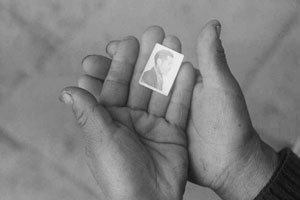So you thought taking lots of photos will prevent you from forgetting anything? Psychologists believe the opposite is the case. People who constantly takes pictures remember significantly less than those who observe. Now here’s a scientific study: those who had taken photos of the artifacts struggled to describe the objects, while those who hadn’t, remembered them more clearly.
And you thought photography makes us look closer? You know the drill: tourists walking thorough a museum, cameras glued to their face or eyes focused on the smartphone while constantly taking photos. Previously, before the ascent of digital photography and smartphones, we took five to ten photos a day. Today it might be in the hundreds.

“People so often whip out their cameras almost mindlessly to capture a moment, to the point that they are missing what is happening right in front of them,” says researcher Linda Henkel.
The camera obscures the view for details, says the study. Following the tests, data showed people were less accurate in recognizing the objects they had photographed compared to those they had only looked at. Furthermore, their memory of detail for the objects they had photographed was poorer.
If participants took a photo of each object as a whole, they remembered fewer objects and remembered fewer details about the objects, including their locations within the museum.
“When people rely on technology to remember for them – counting on the camera to record the event and thus not needing to attend to it fully themselves — it can have a negative impact on how well they remember their experiences,” says Henkel.
Well you can make a self test: how many phone numbers can you remember? Previously, before everyone had a smartphone, you had to actually remember those numbers…
That still photos can strengthen the memory of a visit to the museum , will not rule Henkel. According to the researcher , however, the sheer volume of photos keeps many from getting this again later just to look at. ” If we want to remind us, we need to look at the photos and interact with them ,” says the researcher. Mass exemplary photography alone bring as little.
Research has suggested that the sheer volume and lack of organisation of digital photos for personal memories discourages many people from accessing and reminiscing about them.
“In order to remember, we have to access and interact with the photos, rather than just amass them,” says Dr. Henkel.
Mass photography, it’s confirmed, is pretty useless.
Here’s study’s abstract:
Two studies examined whether photographing objects impacts what is remembered about them. Participants were led on a guided tour of an art museum and were directed to observe some objects and to photograph others. Results showed a photo-taking-impairment effect: If participants took a photo of each object as a whole, they remembered fewer objects and remembered fewer details about the objects and the objects’ locations in the museum than if they instead only observed the objects and did not photograph them. However, when participants zoomed in to photograph a specific part of the object, their subsequent recognition and detail memory was not impaired, and, in fact, memory for features that were not zoomed in on was just as strong as memory for features that were zoomed in on. This finding highlights key differences between people’s memory and the camera’s “memory” and suggests that the additional attentional and cognitive processes engaged by this focused activity can eliminate the photo-taking-impairment effect.
That is, if you aren’t paying attention… I tend to think I notice things I wouldn’t notice without picking up a camera.


